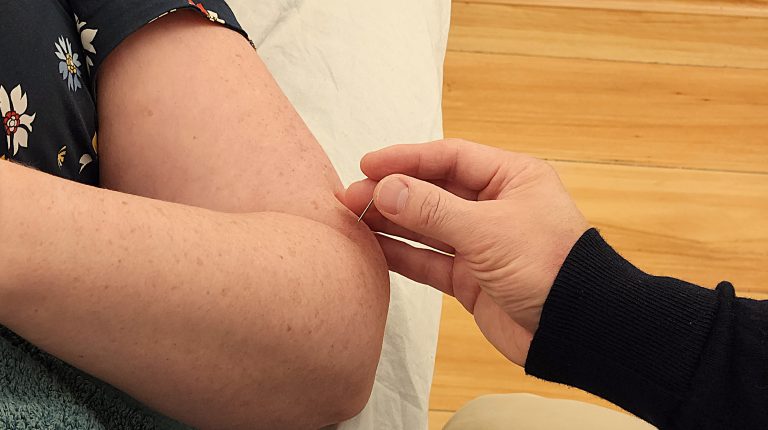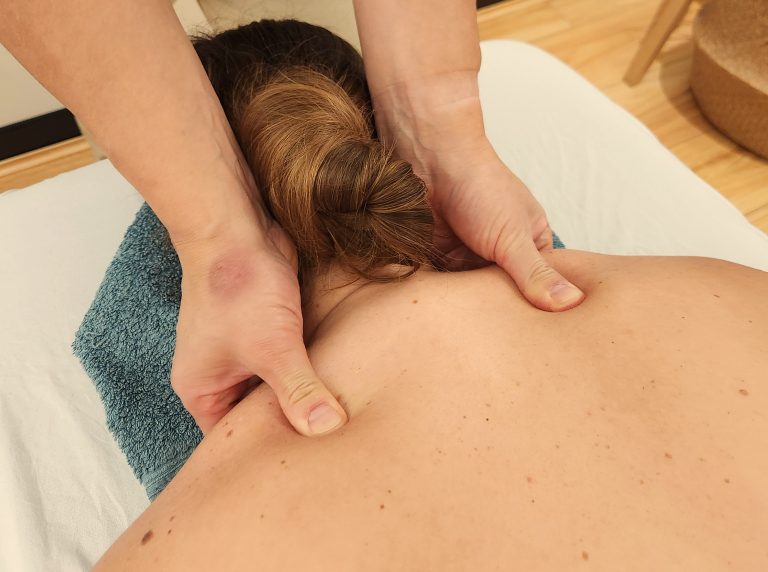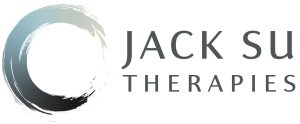What is Traditional Chinese Medicine (TCM)?
Traditional Chinese Medicine (TCM) is a holistic approach to health and wellness. It has been practiced for thousands of years. This guide is for you if you’re curious to learn more about TCM. We will explore its history, how it works and its role in modern healthcare. You will then get a look into the benefits of TCM and why it might be the right choice for you.
To help you make informed choices, we will also explore how to choose the right practitioner or clinic for you. Read on to find out more.
A Quick History of Traditional Chinese Medicine
Dating back over 2,000 years, Traditional Chinese Medicine has its roots in ancient Chinese philosophy. This philosophy focuses on the balance between Yin and Yang, Qi (life force), and the five elements—Wood, Fire, Earth, Metal, and Water. These elements are believed to influence the body’s organ systems and overall health.
Over centuries, TCM has evolved into a sophisticated practice. Today that includes Acupuncture, herbal medicine, and physical therapies like Cupping and Gua Sha.
Modern Applications of Traditional Chinese Medicine
Traditional Chinese Medicine is now used around the world to treat a variety of conditions. These range from musculoskeletal issues like sciatica and back pain to digestive problems, insomnia, and even respiratory issues.
With advancements in both research and clinical practice, TCM has adapted to meet the health challenges of modern life. In places like Balmain and the Sydney CBD, many individuals seek out TCM for its natural, non-invasive treatments that work alongside conventional therapies.
Herbal Therapies:
Herbal medicine is one of the core components of TCM, utilising natural plant-based remedies to restore balance to the body. While Jack Su’s clinic focuses on physical therapies, clinics offering herbal treatments can be recommended in specific cases. These are often combined with Acupuncture or other methods to enhance overall effectiveness.
Physical Therapies:
Physical therapies are central to many TCM practices, offering targeted treatments for various conditions. The most common TCM physical therapies include:
- Acupuncture: Involves inserting thin needles into specific points on the body to release blocked Qi, reduce pain, and promote healing.
- Tuina (Chinese Remedial Massage): A hands-on therapy that focuses on manipulating the muscles and joints to relieve tension and improve mobility.
- Gua Sha: A technique that uses a smooth tool to scrape the skin, stimulating circulation and reducing inflammation.
- Cupping: This involves placing suction cups on the skin to increase blood flow and relieve muscle tension, commonly used for back pain.
- Moxibustion: A heat therapy that burns moxa (mugwort) near Acupuncture points to enhance healing and promote warmth within the body.

How Does Traditional Chinese Medicine Work?
At the core of Traditional Chinese Medicine is the idea of balance. By restoring harmony to the body’s natural energies, TCM helps patients achieve optimal health.
Acupuncture, for example, stimulates specific points on the body to release blocked Qi. The release of Qi promotes healing and reduces pain. Chinese herbal medicine offers natural remedies tailored to each patient’s specific needs. These remedies are concocted to address underlying health concerns without the use of synthetic drugs.
Many people new to Chinese medicine ask, “Does Traditional Chinese Medicine work?” The answer depends on the condition being treated and the practitioner’s expertise. With over 13 years of experience, Jack Su tailors each treatment to the individual. That experience ensures effective results for his patients in the Balmain and Sydney CBD areas.


How TCM Works Together with Western Medicine
Rather than replacing conventional treatments, Traditional Chinese Medicine often works alongside Western medicine. TCM practitioners focus on investigating the root causes of health issues rather than just addressing the symptoms. This can complement Western treatments, particularly for chronic conditions like pain or stress-related disorders.
For instance, many patients suffering from chronic pain find relief in TCM treatments such as Acupuncture or Cupping. These can be used in tandem with physical therapy or medication prescribed by a Western medical practitioner.
This integrated approach can lead to better long-term results by addressing both the symptom and the cause.
How Traditional Chinese Medicine Is Different from Western Medicine
Western medicine focuses on diagnosing and treating specific symptoms or diseases. TCM on the other hand takes a more comprehensive approach. Rather than just addressing the symptoms, TCM looks at the entire body system.
You will likely answer questions about lifestyle and emotional health. Your TCM practitioner will use this information to treat the root cause of a condition.
For instance, chronic headaches might be treated not just with pain relief but with Acupuncture and lifestyle advice to ensure long-term health improvements.


The Importance of a Registered TCM Practitioner
When choosing a TCM practitioner, it’s essential to ensure they are registered and qualified. In Australia, practitioners must meet strict regulatory standards to practice Traditional Chinese Medicine.
You can check a practitioner’s registration with the Australian Acupuncture and Chinese Medicine Association (AACMA) here. You should also check through the Australian Health Practitioner Regulation Agency (AHPRA) here.
As a registered TCM practitioner, Jack Su brings years of expertise and a deep understanding of TCM, ensuring safe and effective treatment. His 13+ years of experience in the field ensure that each patient receives individualised care tailored to their specific health needs.
Finding the Right Traditional Chinese Medicine Practitioner
Choosing the right TCM practitioner is crucial for your health journey. Look for a practitioner with strong credentials and a clear treatment philosophy. Here are some key things to look out for when selecting a practitioner:
- Ensures patient consent is obtained before beginning any treatment.
- Takes the time to understand patient history and individual health goals.
- Provides reassurance to first-time patients, addressing any concerns in a calm and professional manner.
- Speaks in clear and simple terms to explain the procedures and expected outcomes.
- Offers tailored treatment plans based on a comprehensive health assessment.
In addition to these factors, it’s important to ask questions to ensure you’re comfortable with the practitioner’s approach. As a first-time visitor, you may want to ask:
- How many years of experience do you have in treating my condition with TCM?
- What should I expect during my first Acupuncture or Cupping session?
- How long do treatments typically last, and how many sessions will I need?
- How do you determine the most suitable treatment for my condition?
- Can TCM help me manage my existing treatment or medication?
These questions are designed to provide you with peace of mind when selecting your Chinese medicine doctor. The goal is always to achieve balance and wellness through tailored treatments.
How to Find the Best TCM Clinic
When seeking out a TCM clinic, location, expertise, and environment all play a role. A reputable clinic will have qualified practitioners registered with AACMA and AHPRA. They will also offer a wide range of services, from Acupuncture to Gua Sha.
Servicing Balmain, the Sydney CBD and the inner west, Jack provides expert care in a comfortable and welcoming environment.
Wrap Up of Traditional Chinese Medicine
Traditional Chinese Medicine offers a time-tested approach to health and healing that works in harmony with modern medical practices. If you are managing chronic pain, seeking stress relief, or exploring natural ways to enhance your health, TCM may be the solution you’re looking for. If you are located in Balmain or the Sydney CBD, Jack Su is here to guide you on your journey to wellness. Jack has over 13 years of experience as a licensed TCM practitioner. Be comfortable knowing that he ensures each patient receives personalised, expert care to address both symptoms and root causes.
Frequently Asked Questions About Traditional Chinese Medicine (TCM)
Q: Does Traditional Chinese Medicine (TCM) work for chronic pain?
A: Yes, Traditional Chinese Medicine can be highly effective for managing chronic pain. Many patients in Balmain and the Sydney CBD have found relief through Acupuncture, Cupping, and Tuina, which are designed to address the root cause of pain rather than just treating symptoms. TCM focuses on restoring balance in the body, which can help alleviate long-term conditions like back pain, migraines, and arthritis. Jack Su has successfully treated many chronic pain cases over his 13 years of practice, using techniques that aim to improve overall well-being.
Q: How does TCM work together with Western medicine?
A: TCM and Western medicine can complement each other effectively. While Western medicine often targets symptoms with medication or surgery, Traditional Chinese Medicine focuses on balancing the body’s energy (Qi) and addressing root causes. For example, someone undergoing physiotherapy for joint pain might also use Acupuncture to stimulate healing and improve recovery times. Many patients in Balmain and the Sydney CBD visit Jack Su’s clinic for TCM treatments that enhance the effectiveness of their ongoing Western medical treatments, particularly for chronic conditions like sciatica or digestive issues.
Q: What are the benefits of Traditional Chinese Medicine for stress and sleep issues?
A: Traditional Chinese Medicine, including Acupuncture, has been shown to reduce stress and improve sleep quality by promoting the body’s natural healing abilities. Acupuncture, for example, helps regulate hormones and increase circulation, which can ease anxiety and insomnia. In busy areas like the Sydney CBD, Jack Su’s clinic often sees patients dealing with high stress levels. TCM’s holistic approach helps bring the body back into balance, providing natural relief from stress and improving sleep without the side effects of medications.
Q: How do I know if a TCM practitioner is registered?
A: It’s essential to ensure that any Traditional Chinese Medicine practitioner you visit is registered with a reputable body. In Australia, practitioners should be registered with the Australian Health Practitioner Regulation Agency (AHPRA). You can check the registration of your practitioner here. Additionally, look for memberships with the Australian Acupuncture & Chinese Medicine Association (AACMA), which ensures practitioners meet high standards of care. Jack Su is fully registered with both AHPRA and AACMA, ensuring you receive safe, professional care.
Q: What should I ask my TCM practitioner before starting treatment?
A: Before starting any treatment, it’s important to feel confident about your care. Here are some key questions you might want to ask your TCM practitioner:
- What specific conditions do you specialize in treating?
- Can you explain how Acupuncture or other therapies will help with my condition?
- How many treatments do you think I will need?
- Do you follow a consent-based approach during treatment?
- Are you registered with AHPRA and AACMA?
Jack Su prioritizes patient communication, always explains treatment plans in clear terms, and ensures full consent is obtained before starting any procedure. His clinic in Balmain is well-regarded for its patient-centered approach and comprehensive care.
Q: How long does a typical TCM treatment session last?
A: A typical Traditional Chinese Medicine session lasts between 45 minutes to an hour, depending on the treatment type and your specific needs. Initial consultations might take longer as your TCM practitioner will conduct a detailed health history and diagnosis. Follow-up sessions, such as Acupuncture or Tuina, are usually shorter. At Jack Su’s clinic in Balmain, he takes the time to explain each step of the process, ensuring you understand how the treatment works and how long it will take.
Q: Can TCM help with digestive issues?
A: Yes, Traditional Chinese Medicine can be effective for treating a variety of digestive issues, including irritable bowel syndrome (IBS), bloating, and indigestion. Techniques like Acupuncture work to rebalance the digestive system by promoting better circulation and calming inflammation. Many patients in Balmain and the Sydney CBD visit Jack Su’s clinic to treat digestive problems that haven’t responded well to other treatments. By focusing on the root cause of these issues, TCM can provide long-lasting relief.
